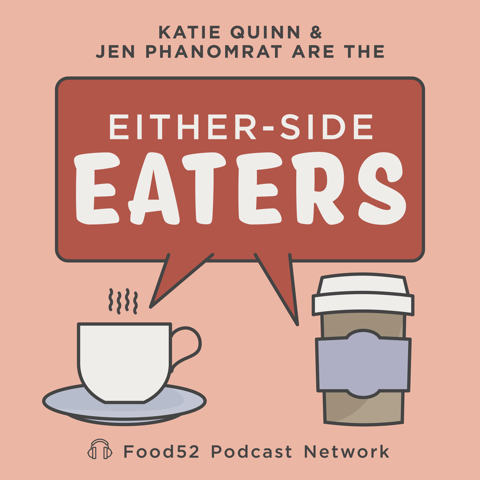
On our new weekly podcast, two friends separated by the Atlantic take questions and compare notes on everything from charcuterie trends to scone etiquette.
Listen NowPopular on Food52
14 Comments
Sandy
January 30, 2019
It’s funny how women are always encouraged to deprive themselves of things, literally in this case. If it brings you pleasure, legally, keep it, buy it, use it. You deserve it. You deserve pleasure and joy. Women are AWESOME and beautiful, all shapes, sizes, colors, etc. (I get the point and all, but it’s just something I think about. It’s funny she plugs her book @ the end. Stop buying💩 but buy my book 1st 🤐. ) If I’m trolling, I apologize. I wish you ❤️.
FrugalCat
February 21, 2018
I read a book several years ago called Living Well With Less where the author gave up one thing a month. Some were food related, some were not. A couple were specific to NYC, where she lived (taxis, elevators). I got inspired and back in 2011 I went for it. I alternated food ones (meat, dairy, alcohol, sugar, dining out) with non-food ones (television, driving, cursing, shopping). It was interesting and enlightening. Hardest month BY FAR was sugar.
Djay
February 17, 2018
Very timely article for me as I have been sorting and decluttering for well over a year. What I have discovered is that getting rid of stuff progresses in layers; what I thought I could not get rid of 6 months ago, I am able to let go of it now. And in a continuum from what I know I do not want to what would I totally miss if I got rid of it. It is amazing how we cling to our stuff for whatever reasons others cannot understand. Thank you for sharing your experience.
Djay
February 17, 2018
Very timely article for me as I have been sorting and decluttering for well over a year. What I have discovered is that getting rid of stuff progresses in layers; what I thought I could not get rid of 6 months, I am able to let go of it now. And in a continuum from what I know I do not want to what would I totally miss if I got rid of it. It is amazing how we cling to our stuff for whatever reason others cannot understand. Thank you for sharing your experience.
Martha M.
February 16, 2018
Cookbook fans: most public libraries have a wonderful selection of old and new cookbooks. Take a look--they're free and must be returned, so no hoarding!
Martha
Martha
Kathy M.
February 15, 2018
I have been doing something extremely similar for the past year and a half more out of necessity even the my favorite quote for the past 2 decades is wants vs needs. If I dont NEED it. I dont buy it. I have been bad about De cluttering that is a work in progress. I quilt so before a damaged outfit gets pitched I save buttons zippers and if nice material as much as can be. I donate the quilts to animal rescue facilities. Now that I will be moving to a smaller place I hope soon. I have to make a quilt for my day bed I am turning into a sofa. I like your idea.
Kameryn T.
February 15, 2018
Love this approach and especially the 3 different lists!
--Kameryn
wwww.sullivanstreeteats.com
--Kameryn
wwww.sullivanstreeteats.com
Rhonda35
February 10, 2018
This approach to decluttering sounds much more doable for me than Marie Kondo's. I think the one thing I'd have a hard time not buying is books, especially cookbooks!
Hana A.
February 11, 2018
Hi Rhonda - Thanks for commenting. I wholeheartedly agree; cookbooks are my weakness, too!
Anisa F.
February 15, 2018
Why do you need Cookbooks when you have https://www.pinterest.com and youtube ?
Sarah M.
February 16, 2018
I have been getting all my cookbooks at the library and making copies of the recipes I love! If I can’t stop thinking about that cookbook for a few months I may buy it or reserve it again.
Marty L.
February 18, 2019
Sarah M. Just a thought - instead of making copies you can scan the recipe and save it digitally. Although I must confess my digital life is a bit messy as well. I recently decluttered my many copies of recipes that were hard to keep organized



Join The Conversation